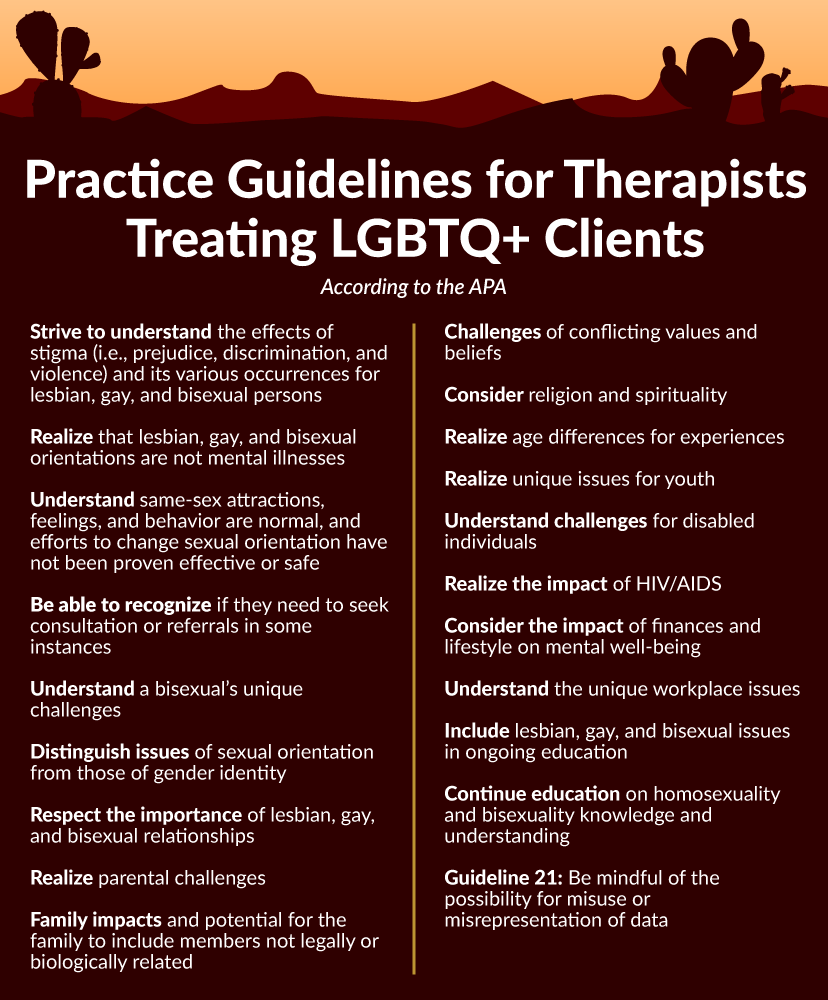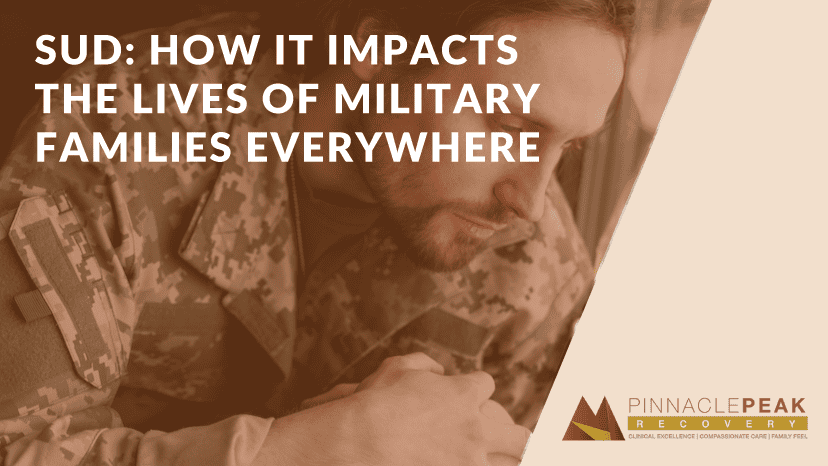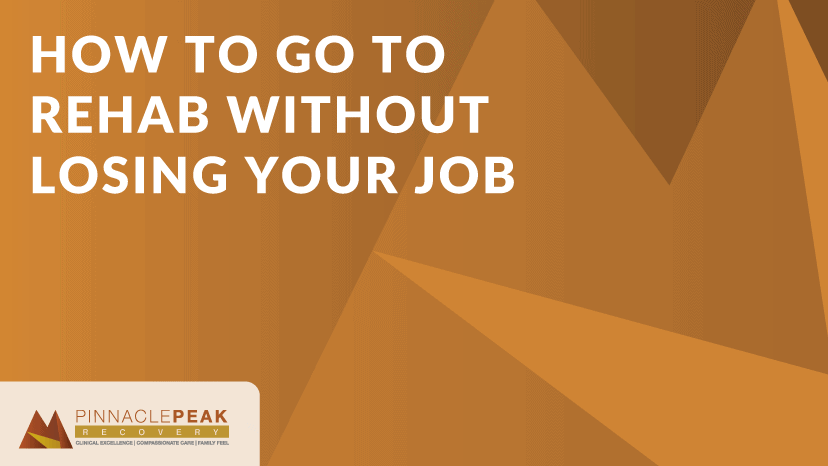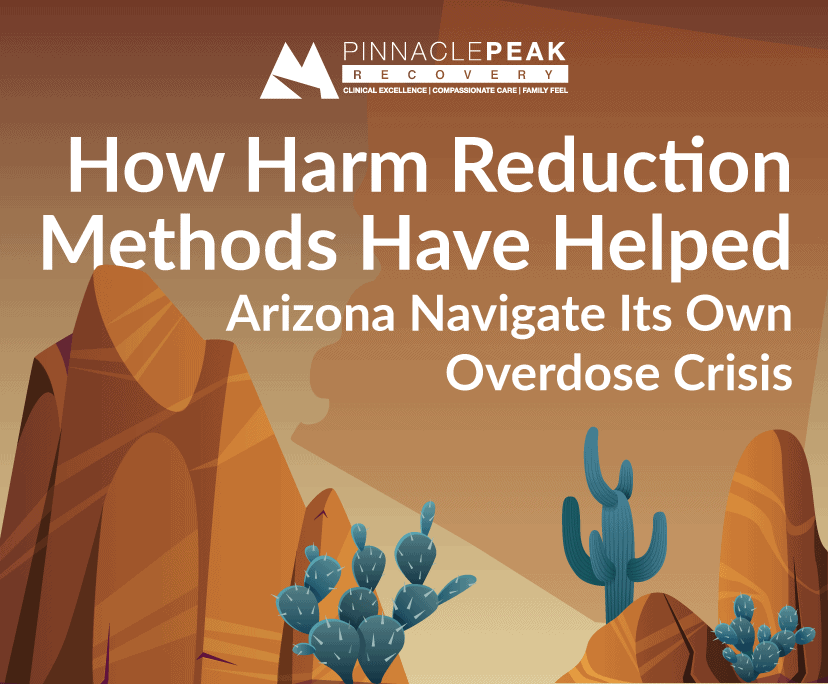Arizona LGBTQ+ Community: Mental Health Struggles Lead To Substance Use Disorders at Higher Rate Than Average Population
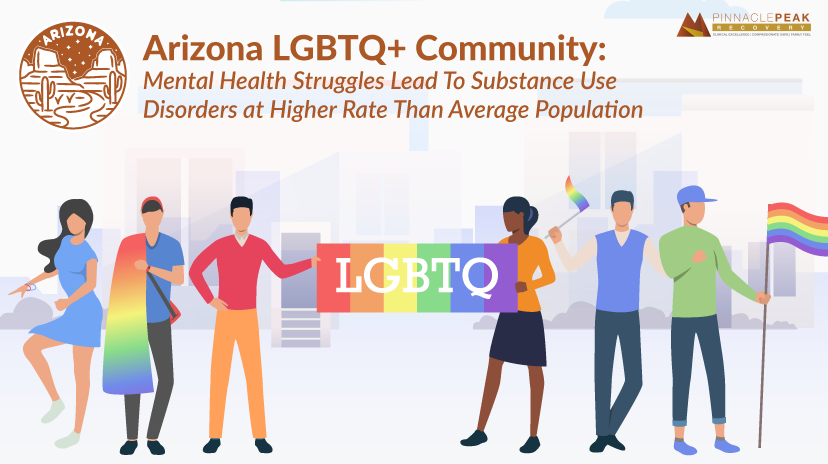
It’s hard enough to admit you need to speak to someone about your mental health. It’s even harder to feel the therapist doesn’t understand.
If your birth name is Alicia and you prefer to be addressed as Evan, as a transgender man you might feel uncomfortable sharing your struggles with depression and family ostracization with someone unfamiliar with the lesbian, gay, bisexual, transgender, and queer (LGBTQ+) population.
If your counselor doesn’t understand gender dysmorphia or the term queer makes them uncomfortable, not being fully understood is a reasonable assumption for someone struggling to embrace parts of their identity. Someone unable to find a welcome place to receive counseling may just turn to substance use to numb their sadness.
Understanding cultures is an important aspect of psychosocial therapy and having appropriately trained mental health providers who understand primary needs for specific populations can go a long way in providing effective treatment. Therapists can be helpful with general counseling, but also be alert to the higher potential for severe depression, suicidal tendencies, or substance use disorders and be able to direct patients to treatment providers that have proven friendly to specific populations
Tragedy Brings Key Issues To Nationwide Discussion
In 2014, 17-year-old Leelah Alcorn felt so lost and alone she walked in front of a semi-truck about 30 miles north of Cincinnati, Ohio. She was a transgender person who tried to speak to her mother about identifying as female since the age of 4. At the age of 16, her parents tried conversion therapy in an attempt to reframe her thinking and accept her male birth gender and name.
Shortly before her suicide, she posted a note on her Tumblr account saying “each day I get worse.” The note sadly ends with “The only way I will rest in peace is if one day transgender people aren't treated the way I was... My death needs to mean something. Fix society. Please."
This fatal act shocked the Midwest community and awakened an international discussion about mental health and families struggling to understand loved ones during their mental struggle with gender identity.
LGBTQ+ Population Uses Substances at Higher Rates Than Heterosexual Population

“There is a disproportionate number of LGBTQ+ people facing severe stressors that lend the population to higher instances of substance use and suicide. The data leaves most of us in shock or a state of concern while asking the question, ‘What do we do?’” said Dr. William Marsh, 36, clinical director of Southwest Behavioral & Health Services (SB&H Services) in Phoenix, Arizona.
Supporters of the LGBTQ+ population understand this and have been working diligently to ensure providers and counselors within the mental health treatment field are trained in these areas.
Closer Look at Arizona
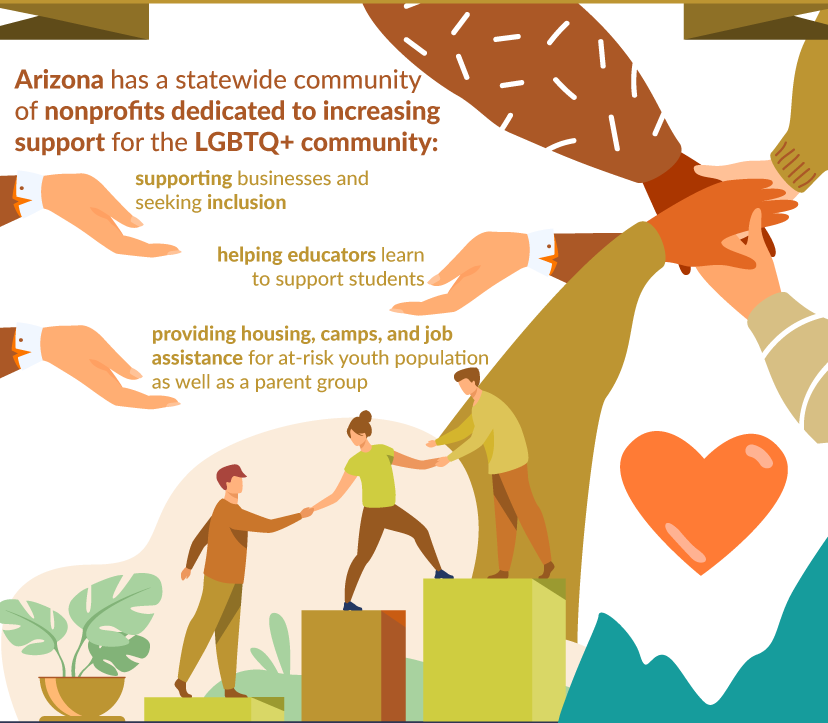
Arizona has a statewide community of nonprofits dedicated to increasing support for the LGBTQ+ community:
- supporting businesses and seeking inclusion like the ONE Community Foundation
- helping educators learn to support students like GLSEN Phoenix
- providing housing, camps, and job assistance for at-risk youth population as well as a parent group, such as one•n•ten
Inclusion, support, and open encouragement for questions are common themes among the many groups.
Bringing Bathroom Needs To the Public Discussion
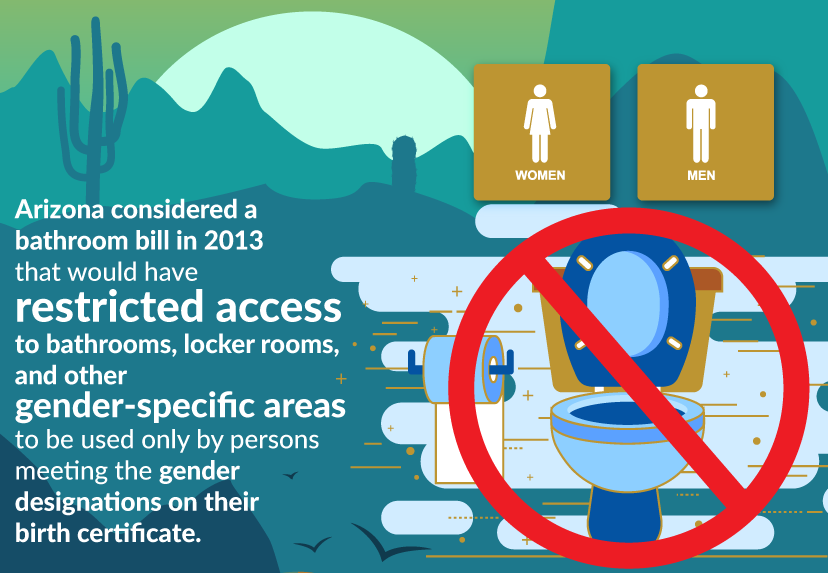
Arizona considered a bathroom bill in 2013 that would have restricted access to bathrooms, locker rooms, and other gender-specific areas to be used only by persons meeting the gender designations on their birth certificate. Something as basic as access to a place for a human being’s need to eliminate bodily waste has reached levels of debate in state legislatures across the country.
There is even a national bathroom-bill tracker on the topic. If a person in the LGBTQ+ community faces this issue at their high school, college, or workplace, they can feel diminished, confused, ashamed, or a multitude of other emotions. If they are being challenged at home or not accepted by their families, the probability of suffering mental health issues as a result undoubtedly increases.
Anti-Discrimination Can Be Addressed At City, County, and State Levels
There are different levels of state, county, and local governments who have the power to approve anti-discrimination language and to announce inclusion support. Some people are outspoken that not taking a proactive stance supports discrimination. Others may argue in doing so, the government is overstepping its boundaries.
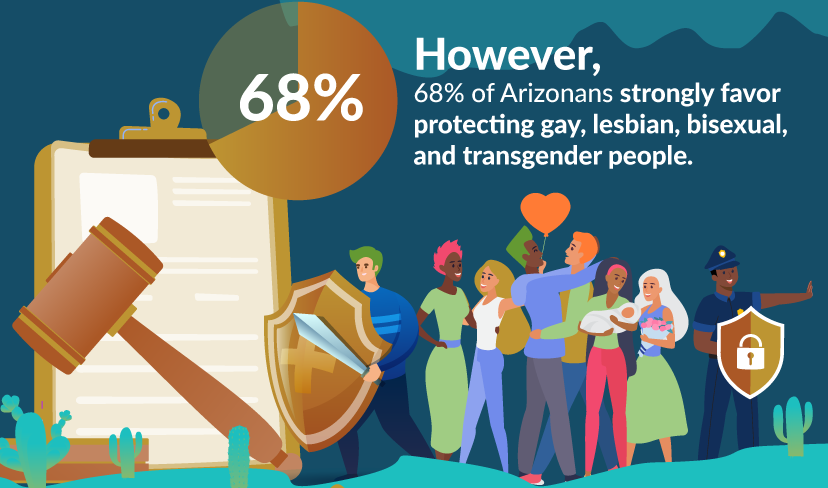
The majority of Arizonans, 68%, strongly favor or favor laws protecting gay, lesbian, bisexual, and transgender people in areas related to housing, jobs, and public accommodations, according to a 2019 survey by the Public Religion Research Institute. The results are similar to one conducted two years earlier by The Human Rights Campaign.
Change(s) Alluded To at State Level
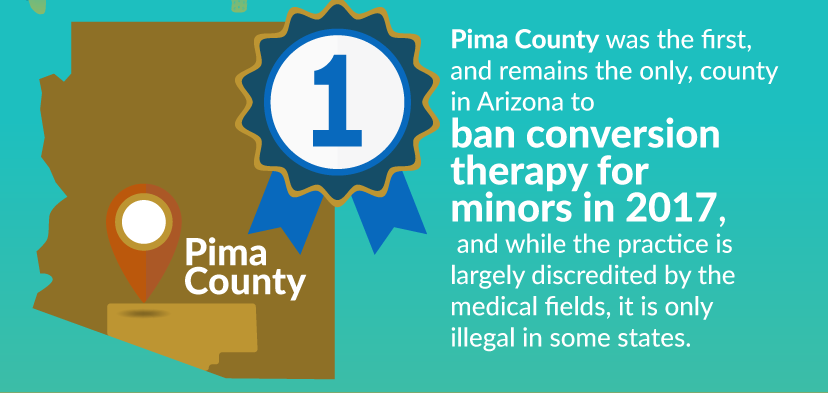
Some of the experiences that have caused stress for LGBTQ+ persons, such as conversion therapy as mentioned earlier for Alcorn, have been vividly described as emotionally damaging. Four years after her tragic suicide, Pima County was the first and remains the only, county in Arizona to ban conversion therapy for minors in 2017, and while the practice is largely discredited by the medical fields, it is only illegal in some states.
State Sen. Tony Navarrete (D-30th District) says Arizona is showing signs of acceptance at the state level and points to his membership in the LGBTQ Caucus, which not all states have. It is a nonprofit political organization that describes its mission as the following: “We work to combat anti-LGBTQ policy and law both statewide and nationally. We support LGBTQ or strong ally Democratic candidates.”
He supports community efforts already in effect and hopes to see the state government move forward on providing more assistance.

“If an individual isn’t comfortable being out in a society, and they don’t feel welcome in a space, they’re going to find ways to cope with that tension in the community and their families.”
Housing needs within the LGBTQ+ communities, drug use, mental health, and the holistic approach are areas he would like to see addressed.
“We’re in the process of developing those priorities for the legislative session, after Covid-related issues.”
Needing Help and Receiving Help Are Two Distinct Measures
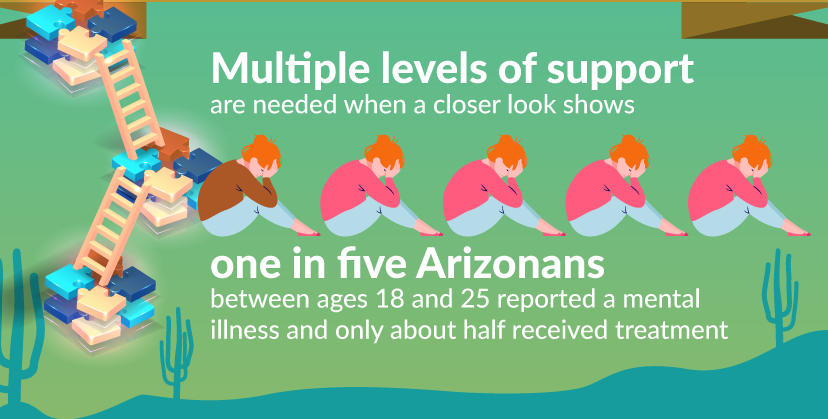
Multiple levels of support are needed when a closer look shows one in five Arizonans between ages 18 and 25 reported a mental illness and only about half received treatment. Arizona ranks below the national average regarding individuals in that age range having a mental illness, however it scores lower in the national average in the number seeking treatment.
Interestingly enough, as age goes up, mental illness declines overall, and those that suffer from it receive treatment at a higher rate. This information is included in the 2018 Arizona Statewide Prevention Needs Assessment, but data was collected in 2015 and 2016.
With shame, depression, or confusion, people can turn to alcohol or other drugs to achieve a sense of joy or soothe their resulting worries. The slippery path to addiction can soon follow.
Tracking Began Recently
In 2015, two questions were added to the National Survey on Drug Use and Health (NSDUH): one regarding sexual identity and one for sexual attraction. These two questions regarding sexual orientation are important to note because, according to the six individuals from SAMHSA and the non-profit who analyzed the results, their addition made the survey the “first national comprehensive source of federally collected information on substance use and mental health issues among sexual minority adults.”
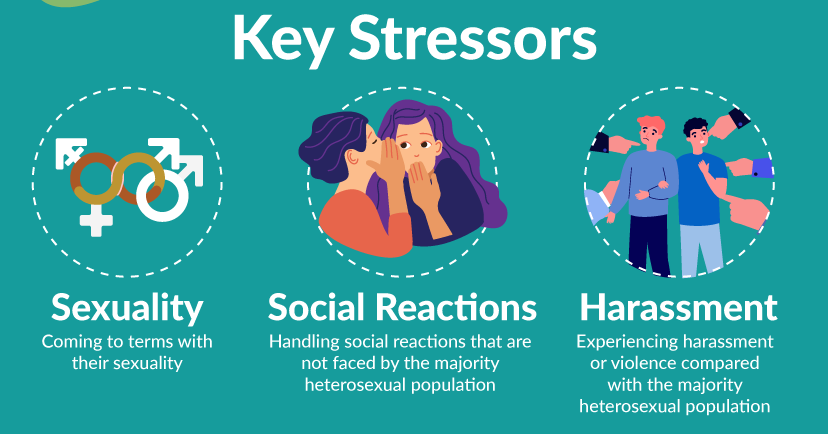
It noted key stressors unique to this group include
- Coming to terms with their sexuality
- Handling social reactions that are not faced by the majority heterosexual population
- Experiencing harassment or violence compared with the majority heterosexual population
Sexual Minority Admits Higher Percentage of Illicit Drug Use in Past Year
More than half of sexual-minority young adults ages 18-25, or 54%, said they had used an illicit drug in the past year, compared to 36.1% of the sexual minority, according to the NSDUH survey. For those age 26 and older, about one in three identifying as a sexual minority used illicit drugs, compared to one in seven people in the sexual majority.
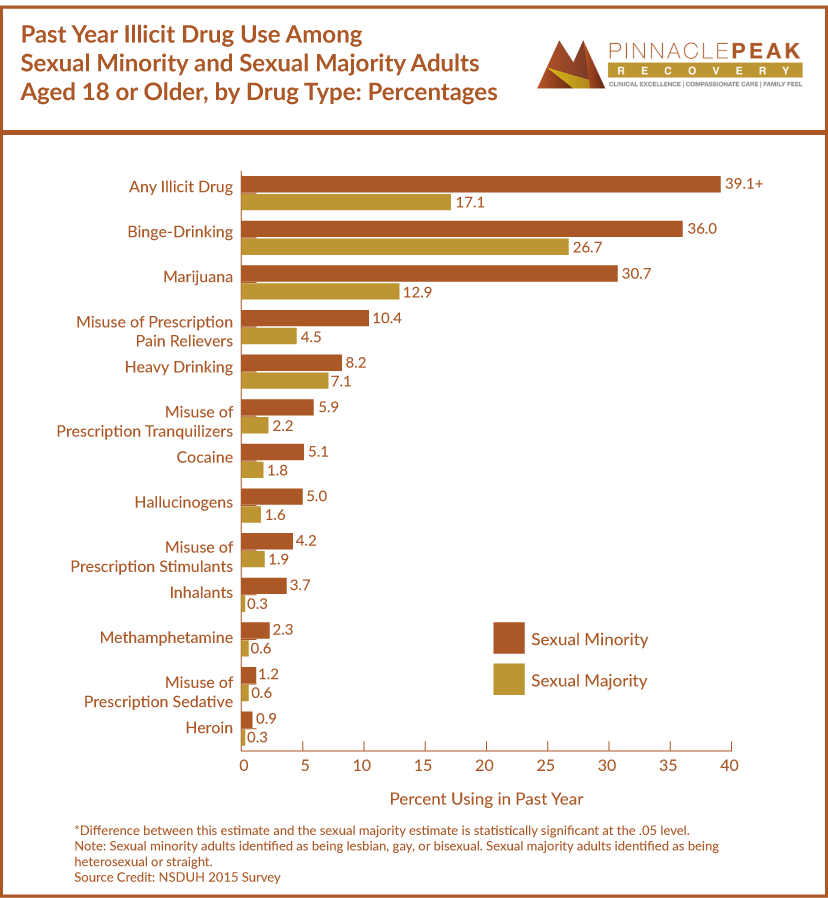
Binge-Drinking Rate Higher, Heavy Alcohol Consumption Similar
As far as alcohol use, sexual-minority adults were more likely to use any alcohol or to binge-drink, at 36%, compared to 26.7% of heterosexuals. However, all sexual groups had similar responses for heavy use of alcohol, at 8.2% and 7.1% respectively. According to the Centers for Disease Control and Prevention (CDC), binge-drinking is considered to be consuming five drinks or more for men and four drinks or more for women in two hours. Heavy drinking is defined by the CDC as men who consume 15 or more drinks or women who consume 12 drinks or more per week.
Where Can LGBTQ+ Population Find Addiction Help?
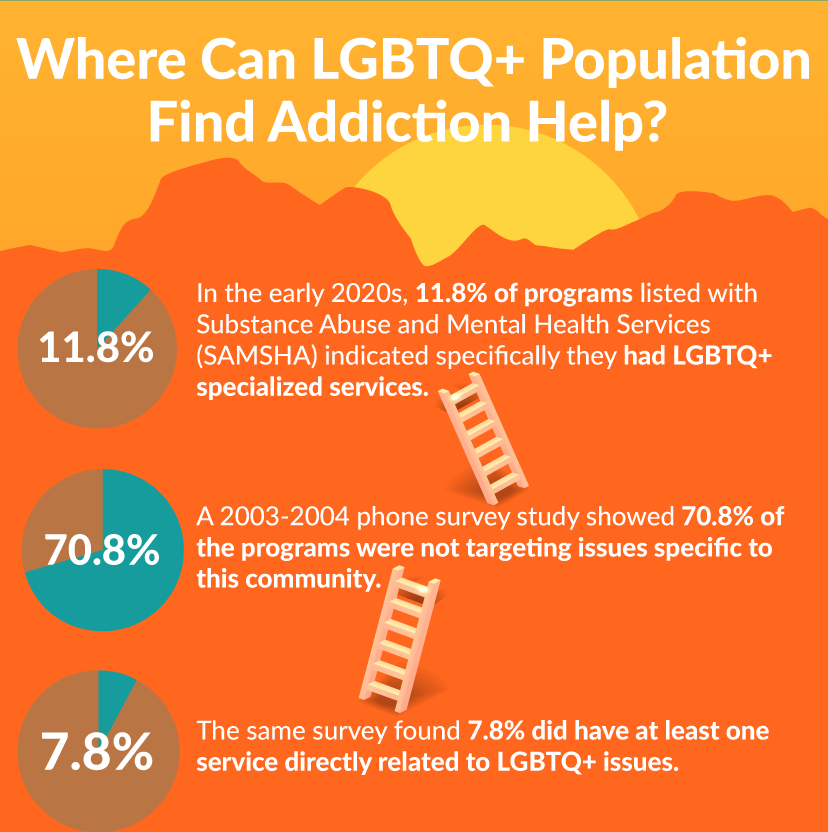
In the early 2020s, 11.8% of programs listed with Substance Abuse and Mental Health Services (SAMSHA) indicated specifically they had LGBTQ+ specialized services. A 2003-2004 phone survey study showed 70.8% of the programs were not targeting issues specific to this community. The same survey found 7.8% did have at least one service directly related to LGBTQ+ issues.
This is relevant to understand because any patient needs to feel safe and understood to respond effectively to treatment. In 2007, the study’s three authors note this correlation in their article abstract: “Substance abuse research has demonstrated that client sexual orientation influences treatment outcomes.”

Alcoholics Anonymous and Narcotics Anonymous operate on the rules that everyone is welcome, regardless of faith, gender, or race. It does, however, accept groups that voluntarily form based on some commonalities, such as men-only, women-only, and LGBTQ+. Groups do this not in an exclusion-based focus, but as the inclusion of others in a similar mindset and to feel safe and heard in an environment that shares the same commonalities.
Dr. Marsh at SB&H Services said his facility, one of the largest community-based behavioral health providers in the state, does have services specifically for the LGBTQ+ community.
“Clinicians that specialize with this population are well versed in the intersectionality of multicultural identities with their unique challenges (e.g., discrimination, marginalization, home/houselessness, isolation, bullying, depression, suicide, etc.) that represent minority stress. Additionally, we have some specialized clinicians that work with the transgender population that can assist with their specific needs (e.g., transitioning, psychosocial support, etc.).”
Services are multifaceted with counseling, housing assistance, and psychosocial support for people going through transition, and intensive outpatient treatment for people battling substance addictions. Dr. Marsh also points to other treatment centers and community resources that support the same goals of inclusion.
“We seek to establish the opportunity for hope and change within their own worldview,” he stated.
If someone in Arizona is unable to find a substance use treatment center with an LGBTQ+ focus, they may find assistance by seeking programs that are inclusionary and accepting, as well as have therapists familiar with issues specific to them. These can often be discussed in group programs or more intensely with one-on-one therapy, which is a proven asset for all in recovery as an evidence-based treatment.
How Can Therapy Help?
Cognitive behavioral therapy is one of many types of therapy that have helped people change their response to obstacles that previously led them to seek a substance to escape their problems. It can be used to help a person re-examine their thought patterns and learn better emotional management and coping skills, rather than continue the addiction pattern.
Many times a substance use disorder is related to a mental health concern, which is referred to as co-occurring disorders. The issues common with LGBTQ+ community members — homelessness, discrimination, abandonment, confusion, and fear — can often trigger anxiety and depression. The person then seeks the substance to make the emotion go away. A compassionate therapist fully trained to understand how these specialized issues have impacted a person’s inner self is a strong partner to help the person through their addiction and imagine recovery.
The American Psychological Association (APA) recognizes 21 guidelines for therapists to better understand their patients (defined as lesbian, gay, or bisexual) during psychotherapy. These include relationships with partners and friends, diversity, spirituality, HIV/AIDS, unique workplace situations, income affecting psychological well-being, and awareness of the potential for misuse of research.
Tee Jay Netters, 30, has been a primary therapist at Pinnacle Peak Recovery in Scottsdale, Arizona, for two years. He said he strives to make all patients comfortable but has grown a reputation for his awareness of the LGBTQ+ community. While the substance use treatment center doesn’t have a specific program with an LGBTQ+ focus, it has always maintained an open door for diversity among its clients.
Netters said outwardly visible in his office is Safe Zone signage indicating support to the LGBTQ+ community. That is a well-recognized signal that makes people aware they can open up to him in a judgment-free zone.
He usually asks his clients if they feel safe and welcome, as well as if they would like to be addressed in a particular way.

“I usually ask if there are pronouns they prefer, so I don’t make assumptions. I call clients by their name or used in a third-party sentence by name. We can always be allies, and I am educated and understanding of the LGBTQ+ community.”
“I ask what they need from me as a therapist and if they have had any psych counseling services. But ultimately, I need to be a good fit for them if they’re going through a trauma. They are welcome to switch therapists, or I’ll refer out of the center.”
He said some may struggle with emotions going through a transgender transition, and others may be celebrating getting their driver’s license with their new name and being able to shed their “dead” name.
Netters delivered this information in a very measured, calm, matter-of-fact way, with a side of empathy evident in his delivery. He pointed to the myriad of community-based programs that support many areas including jobs, housing, small-business support, and general support for the LGBTQ+ population. He offered this additional advice as a resource for people who are struggling with mental health issues.
“My message is if they don’t know where to go, they can go to the Warmline by NAMI.”
He was referring to the early intervention for emotional support, provided by the National Alliance on Mental Illness (NAMI), a so-called “warm” line offered to prevent a hotline-type of crisis.
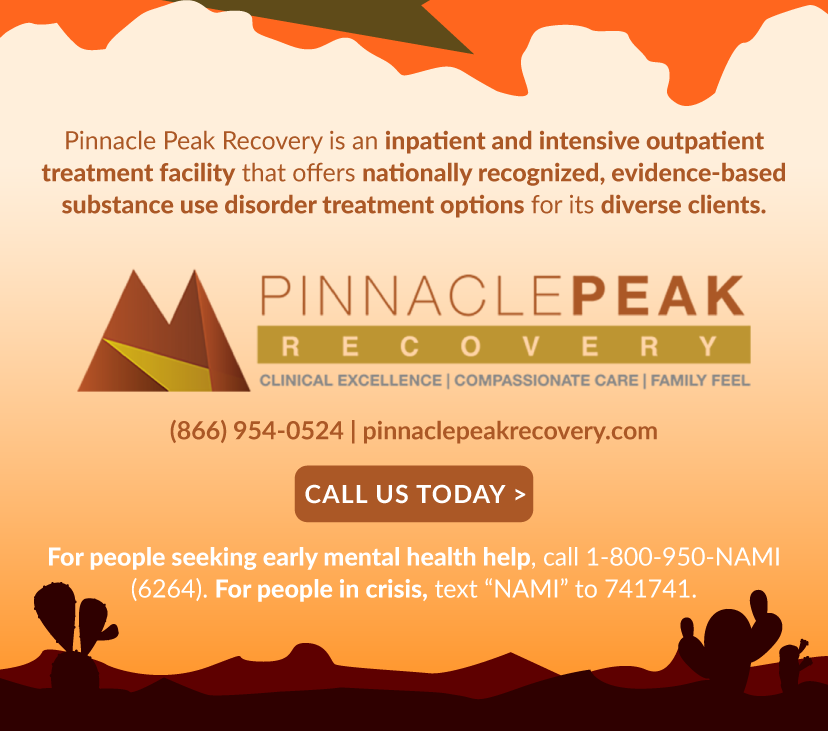
Substance Use and Co-Occurring Mental Health Treatment at Pinnacle Peak Recovery
Pinnacle Peak Recovery is an inpatient and intensive outpatient treatment facility that offers nationally recorganized, evidence-based substance use disrder treatment options for its diverse clients. Its comprehensive and holistic programs include therapies like cognitive behavioural therapy, individual and group therapy, family therapy, and others. To learn more about treatment, call 866-377-4761.
For people seeking early mental health help, call 1-800-950-NAMI (6264).
For people in crisis, text “NAMI” to 741741.
